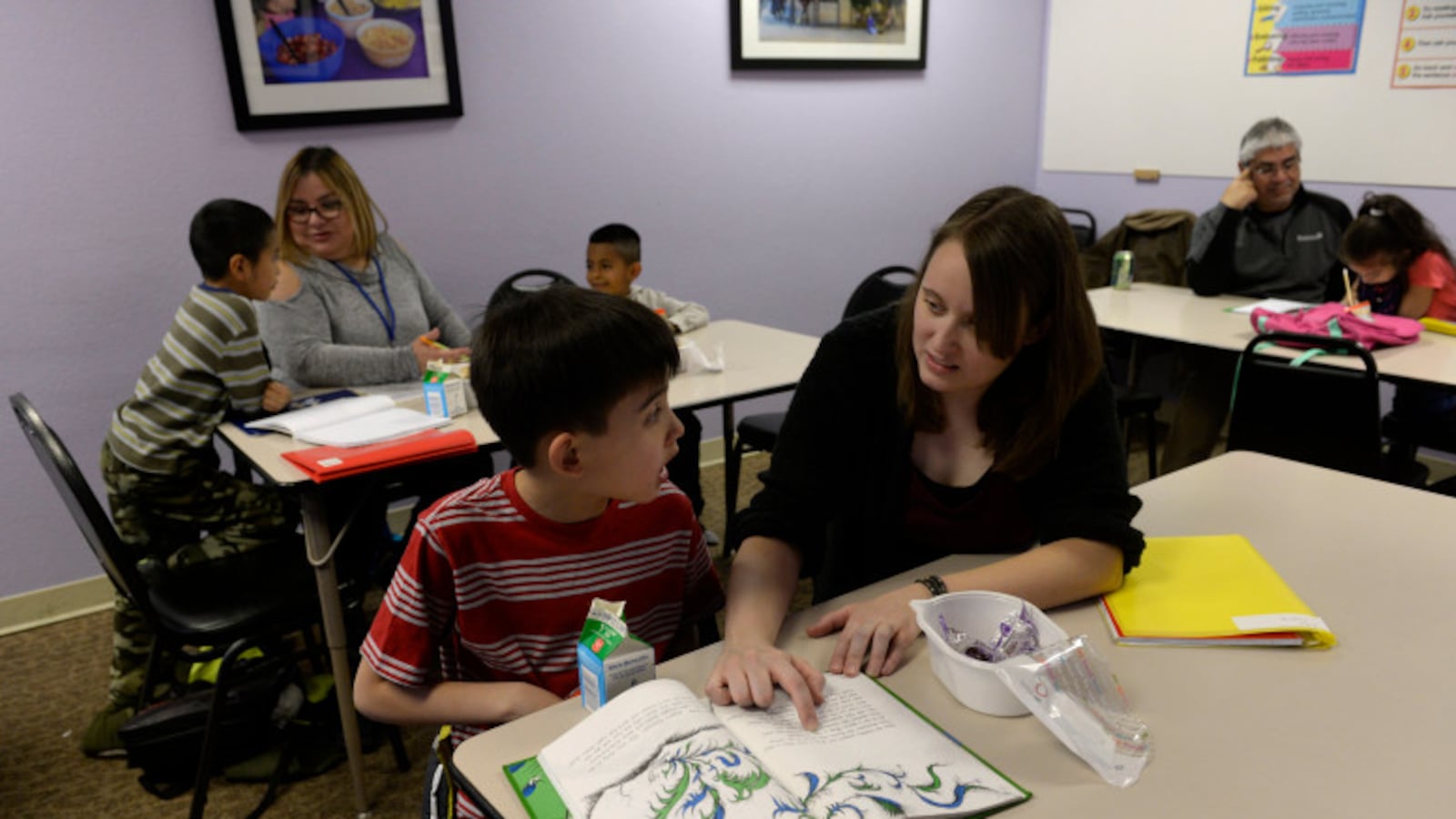As a mother of four U.S.-born schoolchildren, but being in the country illegally herself, Arely worries that immigration agents might pick her up while she is taking her kids to school one day.
But what worries her more is that her children could be picking up on her fears — and that it might hurt their focus in school. She’s also concerned for those immigrant students who could be at risk for deportation.
“There are a lot of us who are looking for the security or reassurance from the district — most of all, that our children will be safe,” said Arely, who spoke on the condition that her full name not be used because of her immigration status.
Dozens of Aurora students and parents, including Arely, are pressing the school board of Aurora Public Schools to adopt a proposed resolution for “safe and inclusive” schools that they say would help. While the Denver school board adopted a similar resolution in February, their peers in Aurora have yet to act.
“Knowing that Aurora doesn’t yet have a resolution makes me feel insecure,” Arely said.
A district spokesman said in an email the resolution won’t be on the agenda of the board’s next meeting, on Tuesday, but that it would be “part of the Board’s open dialogue.”
“Anytime the Board is contemplating a community request, the Board first openly discusses their interest in a public forum,” spokesman Corey Christiansen said. “If there is interest, the Board would decide to move forward at a future meeting to issue a statement.”
Two board members reached for comment Wednesday — Dan Jorgensen and Monica Colbert — both said they supported the resolution.
“I believe that not only do we have a legal obligation to serve all students, more importantly, we have a moral obligation to make sure that all of our students are in safe and inclusive environments,” Jorgensen said. “This resolution is about doing the right thing, including providing a public statement of support and directing reasonable action on behalf of all children in our schools.”
Colbert said not supporting the resolution would deny the strength of the district’s diversity.
“In a district like Aurora where our biggest strength is our diversity, for us not to adopt a resolution such as this would be not well serving of our students,” Colbert said.
The document presented by parents and students would direct the school district to ensure officials are not collecting information about the legal status of students or their families, that they keep schools safe for students and families, and that a memo the district sent to school leaders in February gets translated and made available to all families and all staff.
The memo outlines the procedures Aurora school leaders should follow if interacting with Immigration and Customs Enforcement agents at a school.
The resolution also calls for district officials to write a plan within 90 days for how to react if an immigration enforcement action prevents a parent from picking up a student from school.
The parents and students started sharing concerns at end of last year after President Trump’s election stoked fears in immigrant communities.
Working with RISE, a nonprofit that works with low-income parents to give them a voice in education issues, the parents and students researched other school district resolutions and worked on drafting their own.
“We didn’t want any words that seemed as if they were demanding,” Arely said. “We just want equality for our children.”
Anjali Ehujel, a 17-year-old senior at Aurora Central High School, said she has seen her friends suffering and worried a lot recently. The most important part of the resolution for her was making sure her fellow students were no longer so distracted.
“This is important because we all need education and we all have rights to get education,” Ehujel said.
Another student, Mu Cheet Cheet, a 14-year-old freshman at Aurora West College Preparatory Academy, said she got involved because she saw other students at her school bullied and depressed as they were teased about the possibility of being deported.
“For refugees they would just watch because they didn’t know how to help,” Cheet said. “When I came here, I also wanted to feel safe.”
Cheet, who came to the country as a refugee from Thailand seven years ago, found that working on the resolution was one way she could help.
More than 82 percent of the Aurora district’s 41,000 students are students of color. The city and district are one of the most diverse in the state.
“We really hope APS approves this resolution given it’s the most diverse district in the state,” said Veronica Palmer, the executive director of RISE Colorado.
Here is the draft resolution:

